Operators maintain and inspect machines daily to catch issues early.
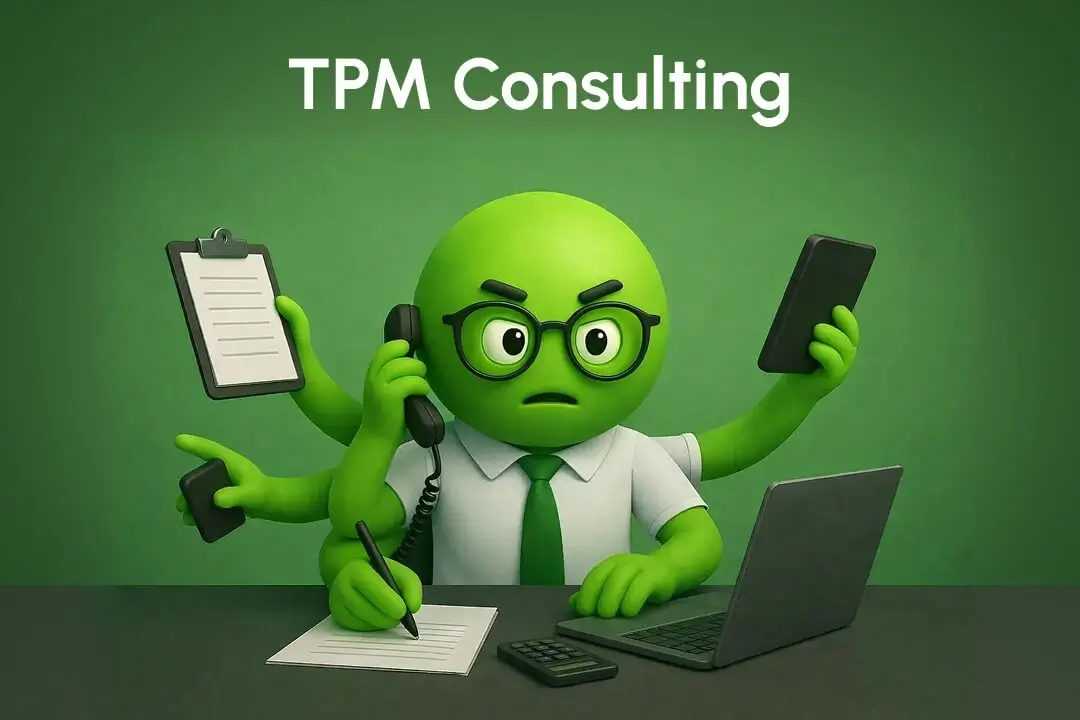
Measure Productivity. Minimize Downtime. Maximize Efficiency.
In continuous batch process industries, unplanned downtime, low machine efficiency, and inconsistent output silently eat into profits. Many industries face challenges like
The desire is clear: optimize machines, reduce costs, improve quality, and make smarter, data-driven decisions that directly impact profitability.

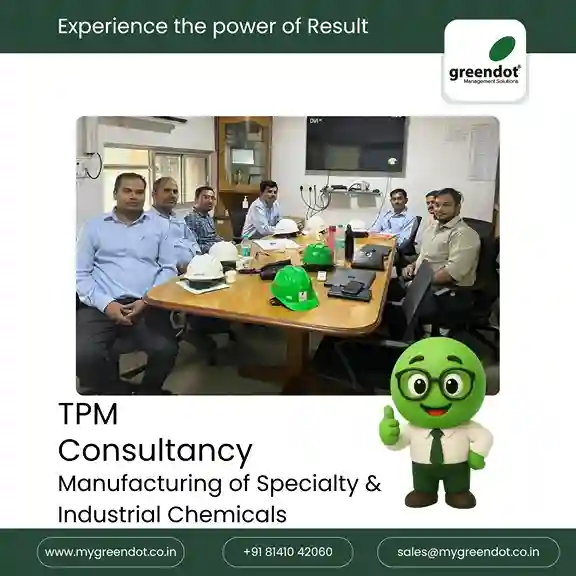



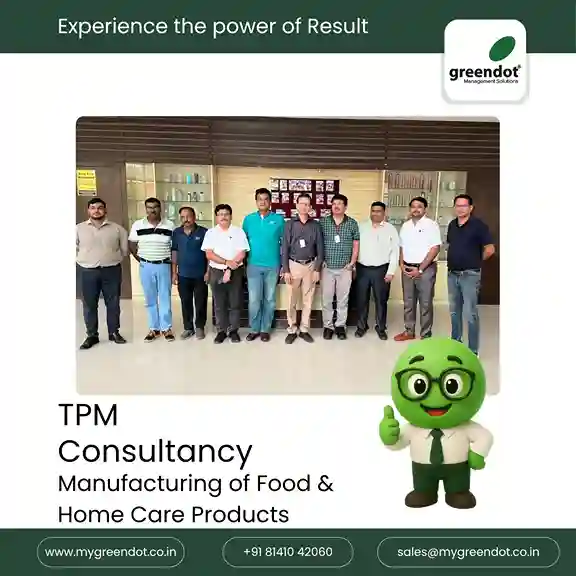
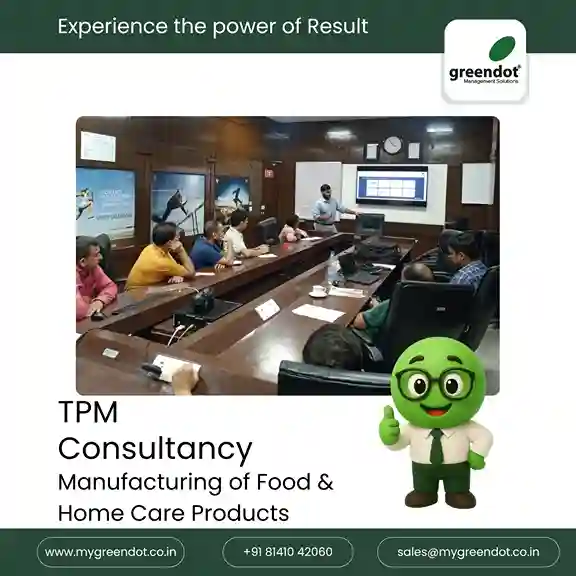
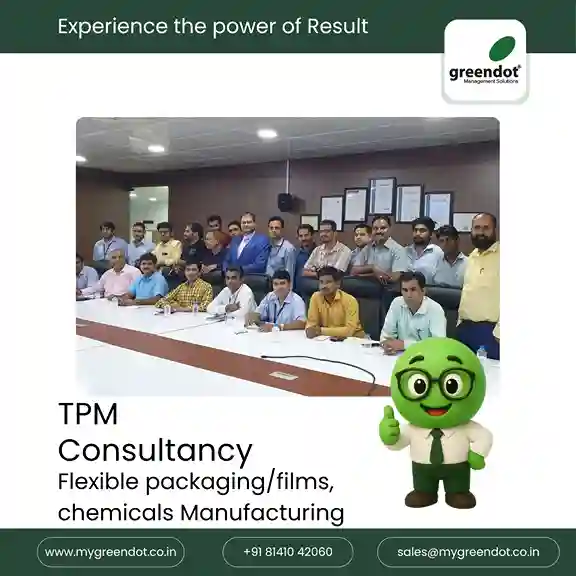





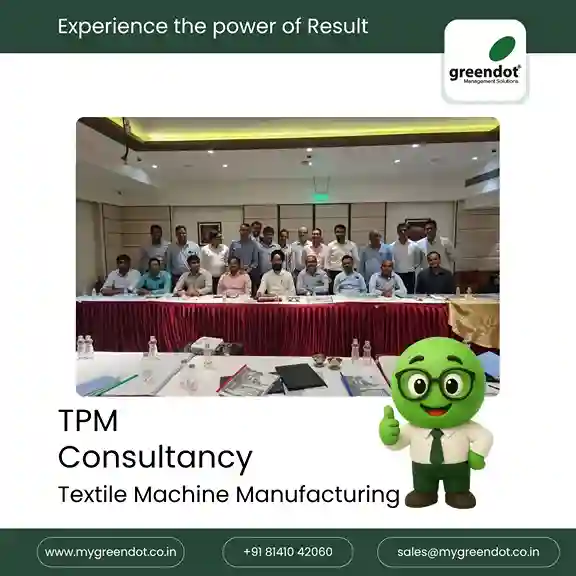
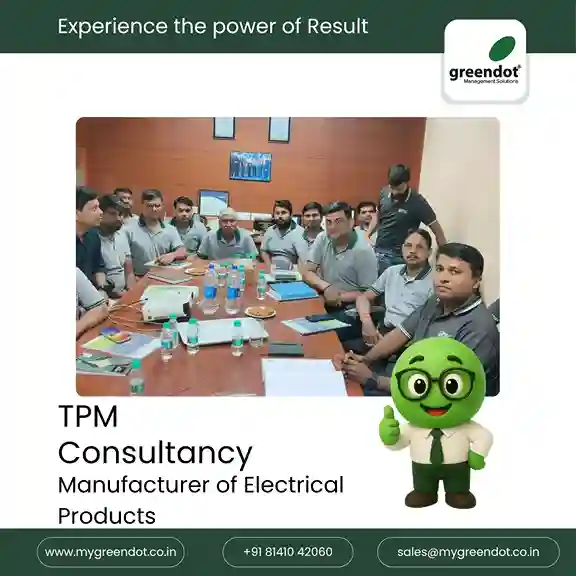
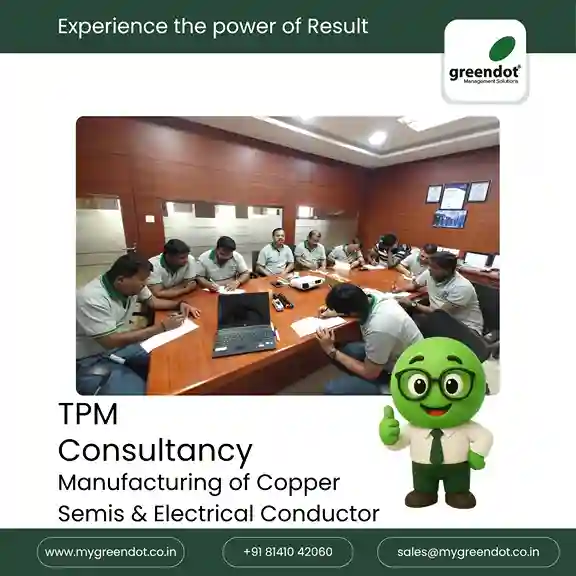
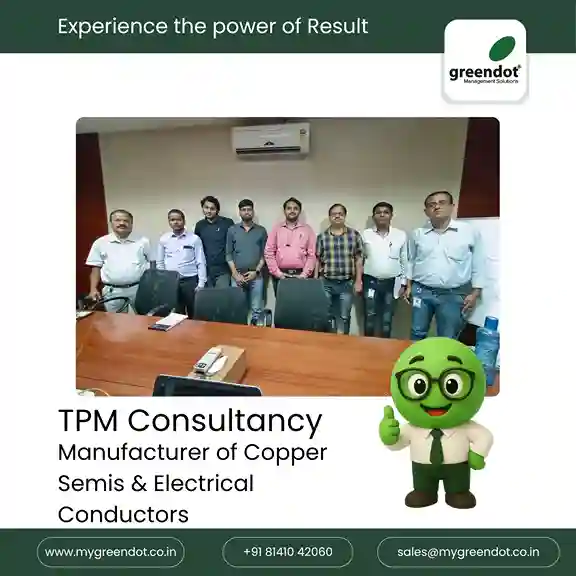

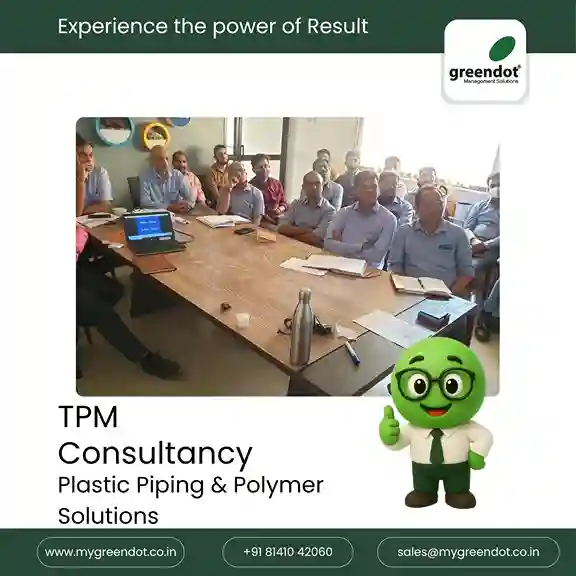
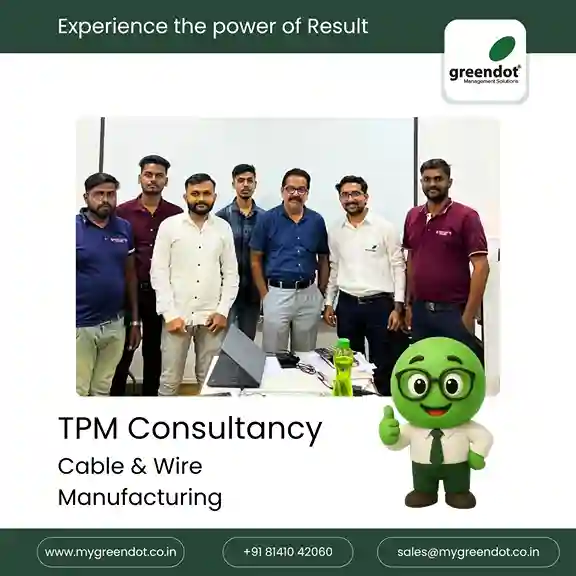

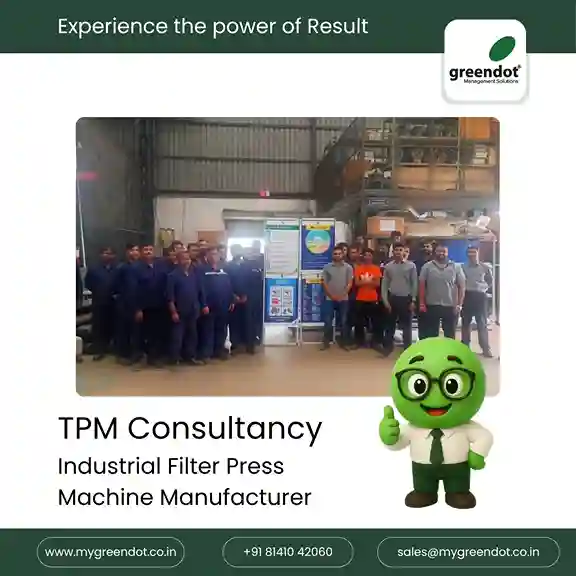
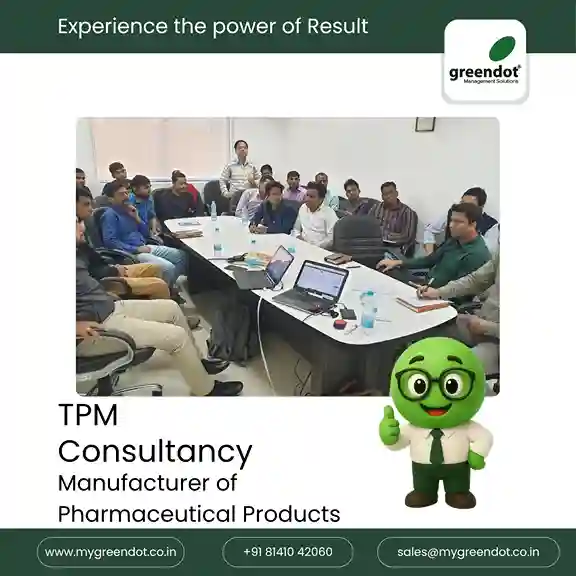
TPM is a holistic approach to maintenance that ensures machines, processes, and teams work efficiently, safely, and reliably.
The 8 TPM Pillars
Operators maintain and inspect machines daily to catch issues early.
Proactive schedules reduce unplanned downtime.
Prevent defects by ensuring optimal machine performance.
Teams systematically eliminate productivity losses.
Design and install machines for long-term reliability.
Build skills for operators and maintenance teams to sustain TPM.
Streamline administrative processes to prevent bottlenecks.
Streamline administrative processes to prevent bottlenecks.
Outcome: Higher OEE, safer operations, improved productivity, and a workplace that runs like a well-oiled machine.
OEE (Overall Equipment Effectiveness) is the key metric to measure machine and process efficiency. It evaluates:
By improving OEE, companies can increase production without additional machines, reduce costs, and enhance profitability. TPM focuses on identifying losses, optimizing efficiency, and sustaining improvements to achieve measurable results.

Answer a few quick questions and get a clear snapshot of what’s working, what’s broken, and where to focus next.
Total Productive Maintenance (TPM) drives continuous process improvement for industries where uninterrupted operations, efficiency, and quality are critical. Key benefits for continuous process industries include:
Maintain consistent batch and continuous output, minimize unplanned downtime, reduce hazards, and optimize raw material usage.
Improve equipment reliability, ensure compliance with quality standards, reduce batch rejections, and enhance operational predictability.
Streamline production processes, reduce machine breakdowns, optimize utility consumption, and improve OEE for higher throughput.
Achieve efficient resource utilization, standardized workflows, and measurable improvements in productivity and cost efficiency.
If you’re ready to:














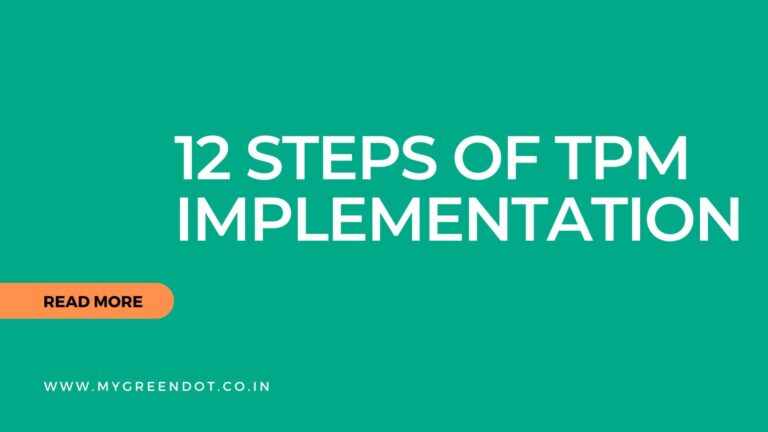
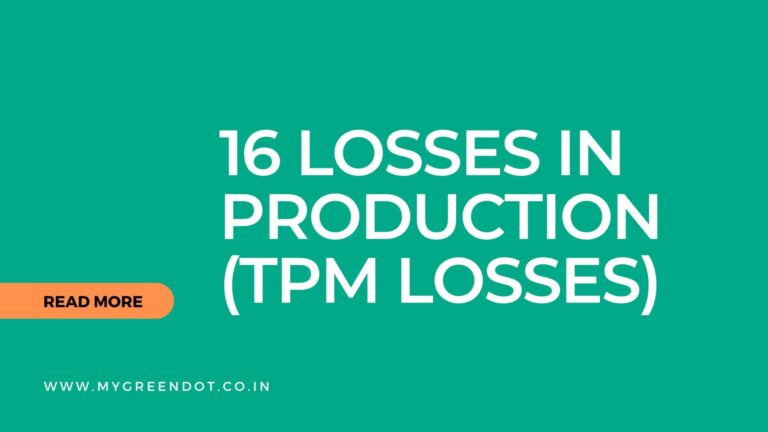
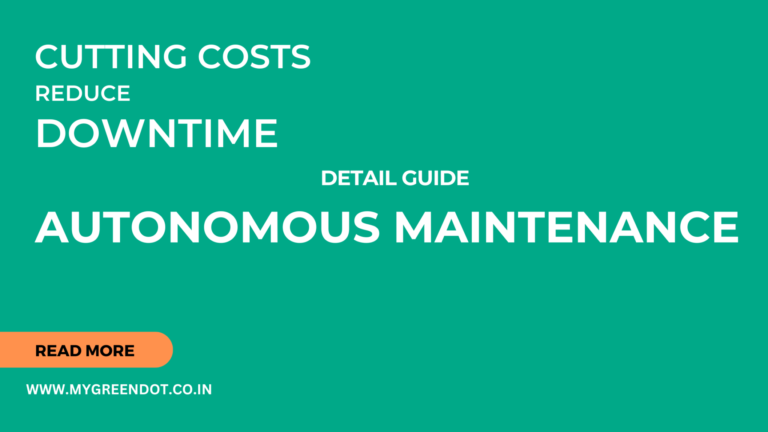

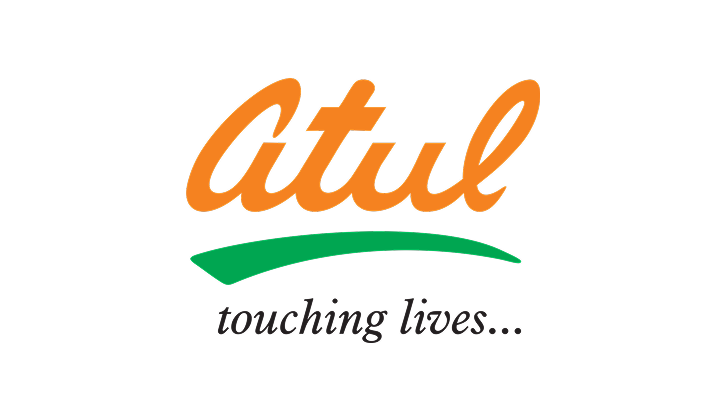
"Nirav has communication skills to get connected with hard working dedicated employees. He supports to bring each employee to visualize broad spectrum role. "
Atul Limited Senior Executive
"Mr. Nirav Trivedi is an excellent coach both on personal and professional front. He has exceptionally curated his TQM course to identify gaps and increase productivity in sort span of time. I wish him and his team best of luck for all endeavors. "
Atul Limited Assistant Manager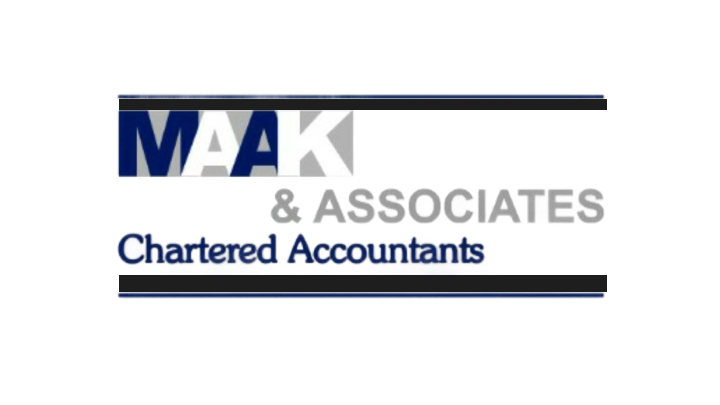
"A person with who can create a roadmap to build strong value and take you to the next level "
MAAK & Associates Managing Partner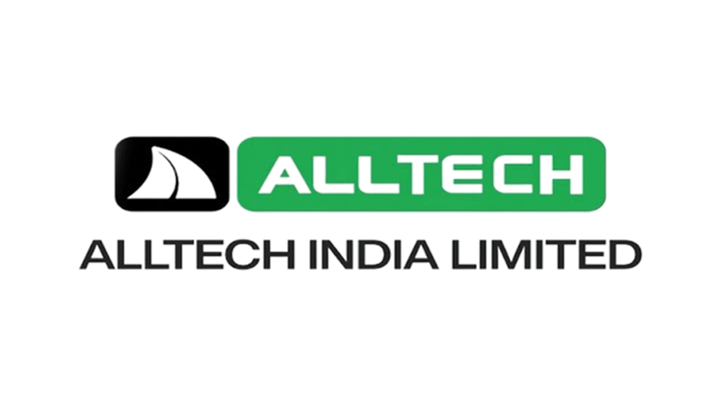
"Had a very good experience working with Greendot Consultancy, we have been resulted into skill improvement and develop personal view to grow our company and how to balance industry in many aspects. "
Alltech Industries Director Of Design, Operation and After Sales
"Mr. Nirav Trivedi is a excellent business consultant we have work with so far. His advice as a consultant has allowed our organisation to expand our business tremendously. He has helped us to implement changes in our policies and strategies that have made our organization more efficient and profitable. He is costliest among all the consultants, but WORTH IT ! "
Alltech Industries Director
"Practical and Innovative way to resolve problems. Highly positive attitude. Implementation of suggested modification and changes is easier. "
Chiripal Polyfilms Senior Manager QC,TS
"Have been associated with Nirav's team, Green Dot for 2 years. These two years were quite focused on our objective and the goal set by the organization. Despite Covid lockdown we could achieve a successful milestone. Support extended by Nirav and team was just fantastic. Thanks Nirav, "
Atul Limited Vice President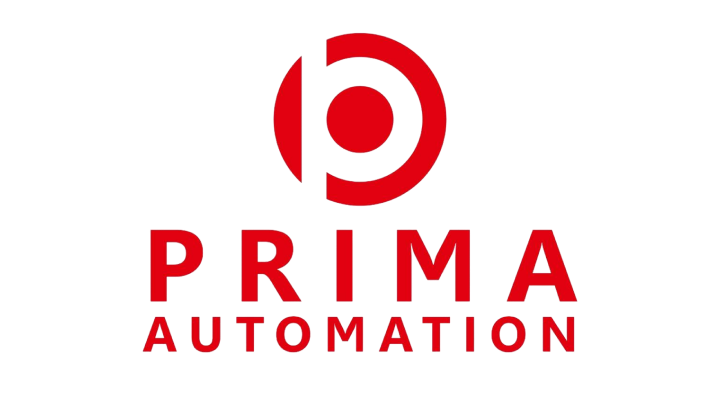
"Nirav is an excellent Management Consultant. His company was appointed by our customer for Vendor Management Program, which included 5S and Lean Management practices. The program was quite effective. Later we engaged him for Strategic Management Program. This program is excellent and very effective. I recommend this program to companies who wants to take benefit from this.. "
Prima Automation (India) Pvt.Ltd Managing Director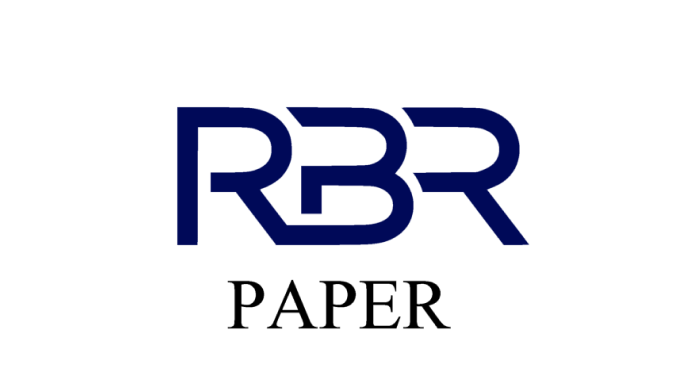
"I am working with greendot since last 12 + year. We are consistently improving our business process and Improved our productivity in paper mill and corrugation industries. In last couple of month we have increased our productivity by around 20% by implementing lean practice. Amazing productive experience with team greendot. They are the only consultant who can retain a client for this much duration and helping our industries to grow. "
RBR Papers LLP Founder
"Nirav Trivedi is an excellent management consultant & coach. He and his team at Greendot has been helping multiple industries in improving productivity and reducing cost by training manpower to optimize processes and increase capacity of machines. I highly recommend his knowledge and expertise in this area. "
Accenture Application Development Associate Manager"Nirav Trivedi as I know him, has very good communication skill along with imparting training in an easy and understandable language. His expertise lies on Lean management, TQM,TPM, 5S, EMS/EHS and other operational management tools and systems through which he transforms the organization to world class facility. He is consultant to organization. Though, when associated, he becomes part of organization and be a team member to take the organization to next levels. This is one of the best practices which I feel is the success of Mr. Nirav Trivedi. I wish him all the best for all is future endeavors and would be pleasure to be in continuous connect and get benefitted with his knowledge and experience. Regards "
Sangir Plastic Vice President Head Operation & NPD
"We have worked with Mr Nirav Trivedi and Green Dot team for 5S implementation and journey is so good so far. 5S is not only house keeping improvement but it will help us in many other areas viz. productivity, inventory, money generation by identifying unwanted items, motivation and many more. "
Atul Limited Head of Engineering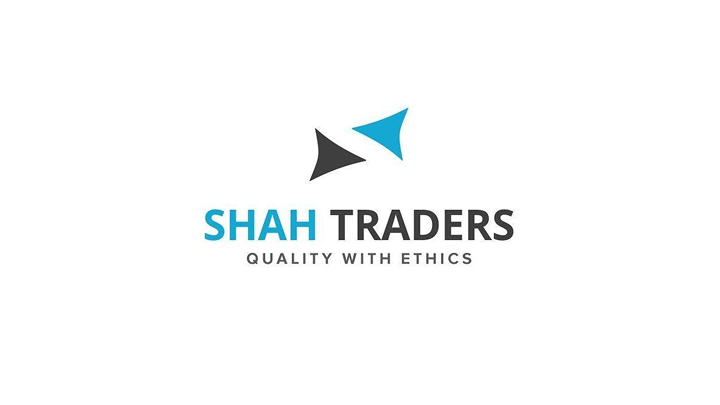
"Best in class Consultant for Business System development "
Shah Traders (Vapi) Directors
"I personally Know Mr Nirav Since a Decade Now. Based on My professional experience & feedback from our a few common client of Cps Technologies & Green Dot, i can say Mr Nirav is having rich experience for management consulting in various Industry Verticles incl a working with out of India's clients, Practical approach in Problem Solving & creating A niche segment for his consulting by coaching , consulting & make client practice six sigma , lean management & etc. Techniques successfully. "
CPS Technologies Head – SMB & Corporate Sales
"Green Dot and NIrav Trivedi is very understanding on problems that organisation is facing and suggest remedies which suits to culture and receptiveness of employees to start off. On process improvement and setting best practices He delivers worth for company, particularly. We worked with him and satisfied with services he delivered. All the best and keep nurturing on. "
Rajhans Group of Industries General Manager Operations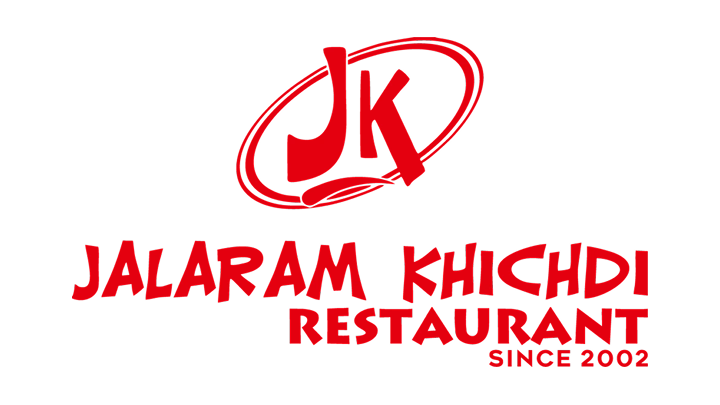
"I am enjoying with his consultation.if u want your business in automode i strongly recommend Mr Nirav Trivedi.i am in Automode r u? jaha apni soch bandh ho jati hai waha se unki soch suru hoti hai. Thank you Nirav Sir. "
Jalaram Khichdi Owner
"Most Reliable consultant, Bring our company to the next level now able to drive the company towards desire mission "
Jalaram Khichdi Director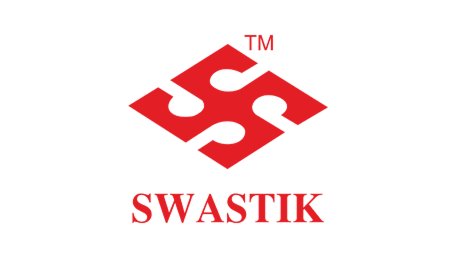
"Industry specific bull's eye approach with their expertise is an effective combination in Greendot's management, for industries to upgrade their operational standards... "
Sahajanand Valves Vise President of Engineering
"Nirav, has worked with our Cluster for Lean Mfg implementation. He is constantly striving for excellence in his chosen domain and working hard towards his goal to taking Green Dot to the next level. Immense clarity of thought, good methodology for implementation across wide spectrum of Industries, keeping himself abreast with latest theories. He is a good orator and a good influencer. I highly recommend Nirav to those who are seeking business solutions for the better. "
RBD Engineers Pvt Ltd Managing Director"GreenDot Consulting lead by dynamic Nirav Trivedi is highly recommendable. He is one of those consultant who has entrepreneurs mindset. Someone who knows to walk on the edge & help his clients get best out of the services provided. I believe he has good grip & insight for MSMEs. Best wishes "
Acme Creation (Logo Missing) Managing Director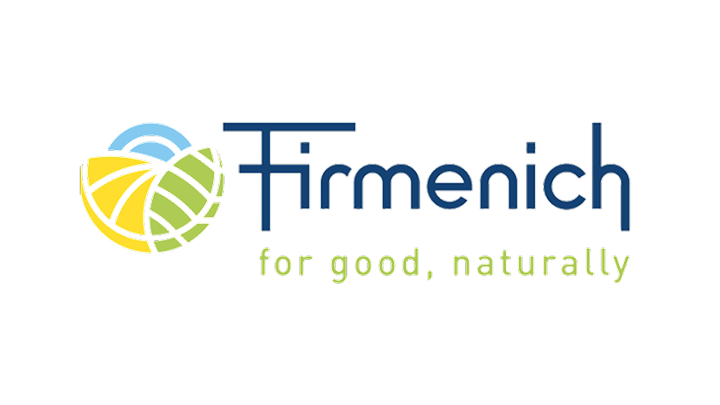
"I know Nirav for many years, he is very committed to his work and his problem solving ability is his biggest asset. He always sets very high standards for him and his team which is difficult for others to match. Wish him all the best in future! "
Firmenich Associate Director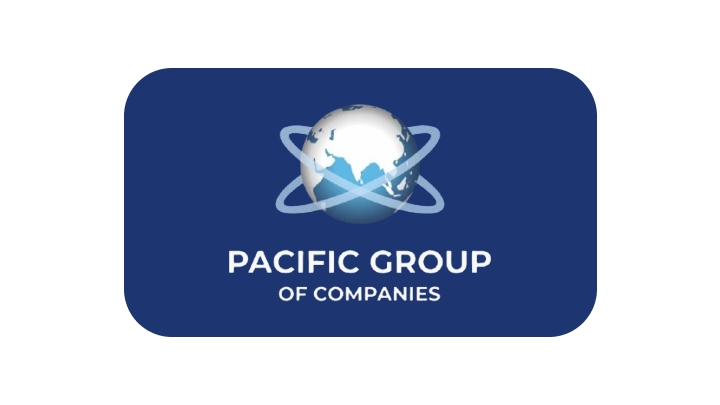
"I know Nirav ji from last 5 years and I had learned a lot from him specially how to make consistent growth in career, excellent personality with in depth knowledge Truly it was Great experience to be connected with you....Thanks for being my connection "
Pacific Group of Companies Owner
Very happy with Greendot's services and their support in continuous development of our organization. Over an year we have not only managed to keep our inventory under control, but also improved productivity. Our profit has increased , cost has minimized and we are currently able to utilize our capacity in very efficient manner. In addition to this, we have also managed to integrate all departments through one system. Greendot team members are very professional, always supportive, polite and have helped our employees adapt to change over a short period of time. Under the guidance of Mr. Trivedi's leadership and vision Greendot success is guaranteed.
Kingsley Ecotech Pvt Ltd Director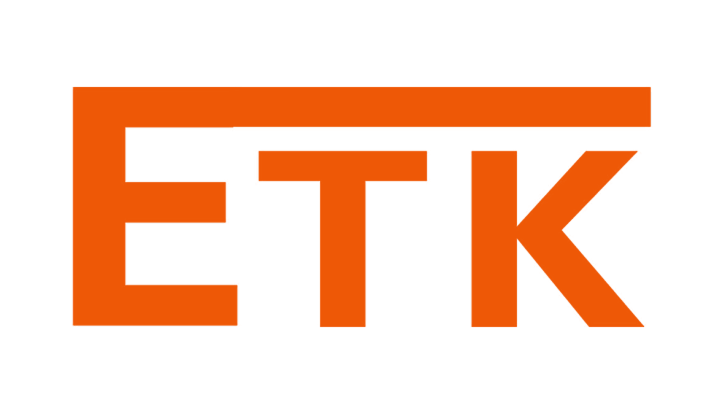
Very Professional on Management !
Hebei Yitaike Bearing Co.,Ltd - ETK Bearings Senior Business Development Manager
Very Professional on Management !
Hebei Yitaike Bearing Co.,Ltd - ETK Bearings Senior Business Development Manager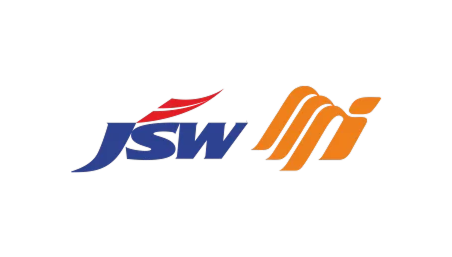
"He has immense and thorough knowledge of lean management, quality management system and backed by excellent academic. projects taken care by Nirajji is always hv a new experience and on time completion. "
JSW MI HR Head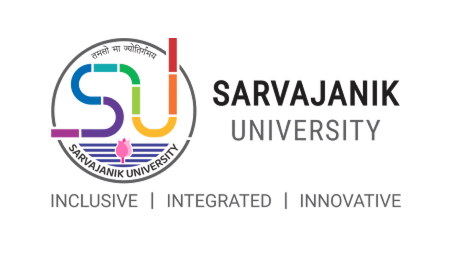
"Good experience of having interacted with Mr. Nirav Trivedi. He delivered a motivational speech for undergraduate Chemical Engineering students at SCET during my tenure as Head of Chemical Engineering "
Sarvajanik College of Engineering & Technology Professor
"Nirav is a good human being to work with and a highly professional management consultant. He has been instrumental in helping many organisations for course correction. wishing him all good things ahead. "
SEC GLOBAL CONSULTING AND INITIATIVES LLP CEO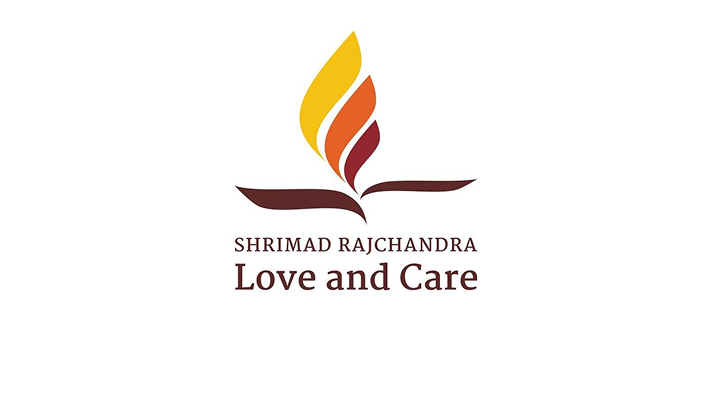
"Nirav has innovative thoughts and I like his management tips. "
Shreemad Rajchandra Trustee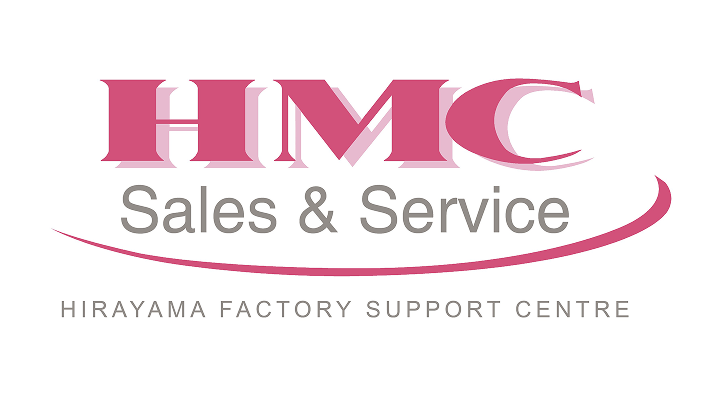
"I would like to recommend Mr.Nirav Trivedi as a management consultant and productivity coach, Himal. "
HMC Sales Owner
"Nirav is one of the most dynamic, versatile person i have ever came across in my professional career. He is one of the best management consultant we have in the whole Gujarat State. He has done some amazing assignments which resulted in huge cost savings , increased productivity for his clients and in some cases he along with his team managed to turn around the companies with their in depth knowledge of the subject matter. He & his team spends great amount of time to understand the root cause of the client & then they come up with the customised solution for them. I wish nirav & his team all the very best & i am sure nirav along with his team of green dot will create many more wonders in the corporate world with their expert knowledge. All the best nirav!! Keep doing the good stuff & keep helping the corporates to evolve & grow!! "
White Turtle Consulting and K&K Associate Co-Founder
"I was looking for an HR consulting firm and came across Nirav and his organization. Having worked with various consultants, I expected the same stuff but was pleasantly surprised to find his methods refreshingly different. Here was also a consultant who guaranteed a positive change... what could be more interesting? We are currently working with his firm and moving forward creating agents of change... Would definitely recommend him to anyone "
Vertellus Speciality Materials (India) Pvt.Ltd Director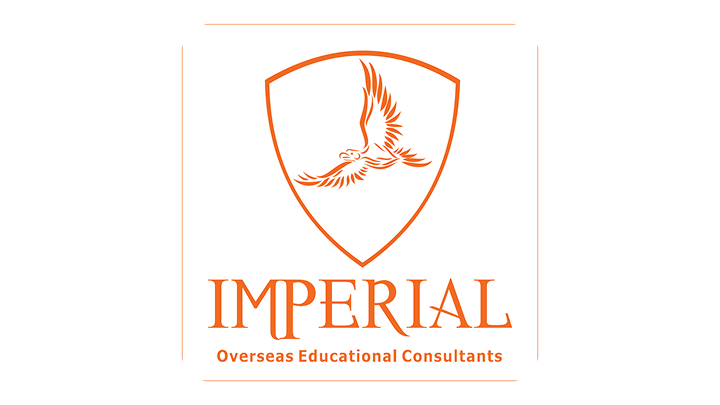
"Nirav Trivedi is amazing person with great knowledge on team management and also with all the great ideas for growing own business with different tools to have faster and success. All completely solution for business for small and big business.. Amazing person with very down to earth and also ready to help everyone.. "
Imperial Overseas Education Consultants( Imperial Platforms Inc) Administrative Assistant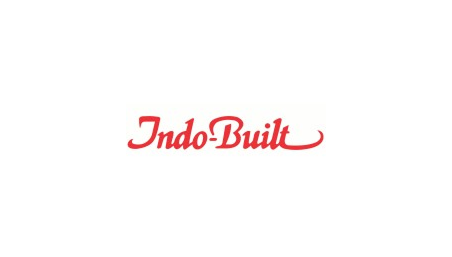
"I Know Nirav more the 20 years , he is Master of Management !! Keep it up "
Indobuilt Storage System Pvt.Ltd Senior Vice President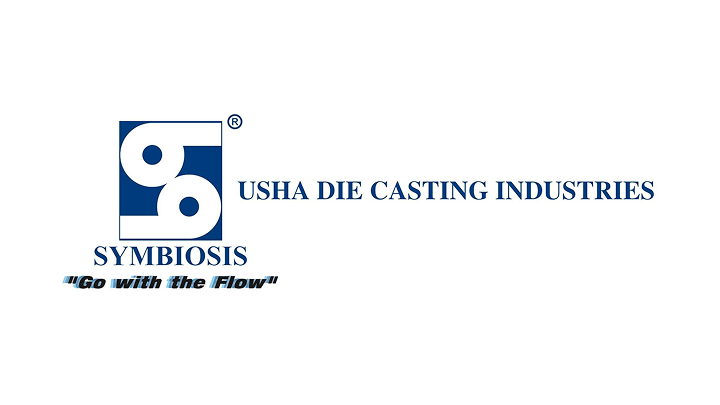
"Superb insight in Small Business operations. Good at decoding SME bottlenecks. Polite service of the entire Organisation. Very well Read. Recommended for Management Consulting "
Usha Die Casting INDS Senior Vice President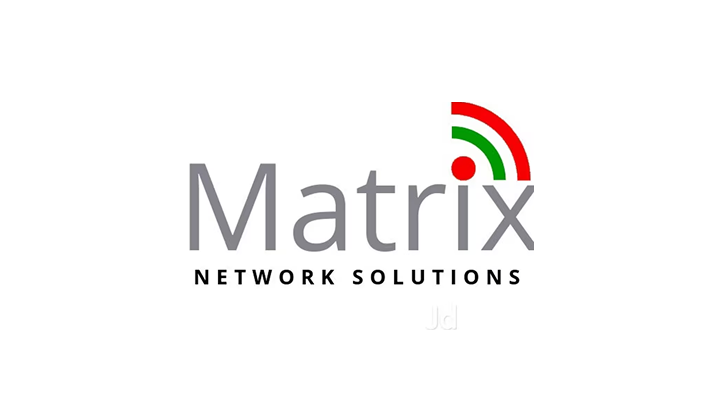
"Nirav & his Tem@ GreenDot Effectively Practices Trade as a Consultant to Various Small to Enterprise Organizations with ease , be it Improving Profitability, Brand Image, HR , Productivity, Efficiency & as team an asset to get associated with ! "
Matrix Network and Solutions Co-Owner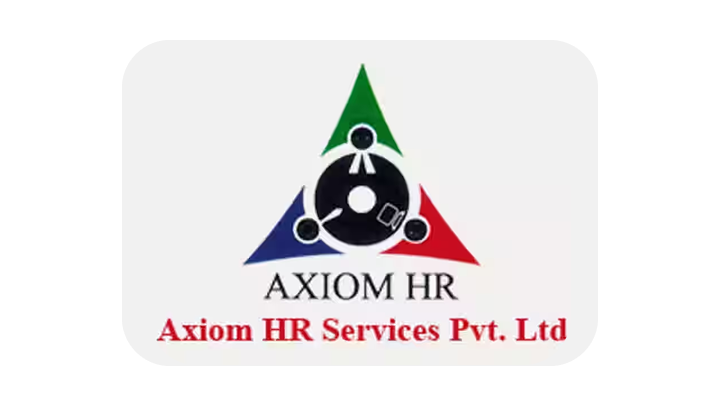
"Good 5s consultant "
Agarkar HR Services Pvt Ltd Director
"I highly recommend Mr.Nirav for his his professionalism and result oriented approach. "
Yashaswi Consultants Founder and CEOUnlock the potential of your business with data-driven strategies. We help you streamline operations, improve profitability, and reach the top of position your company.
© 2026 Greendot Management Solutions | All Rights Reserved | Developed by Kartikjh
WhatsApp us
"Better Consulting option for MSMEs "
Meera Industries Limited Independent Director